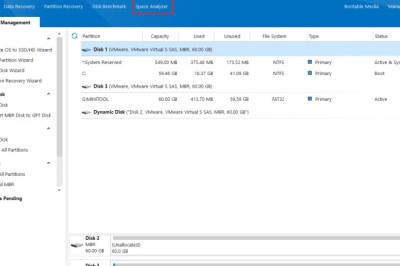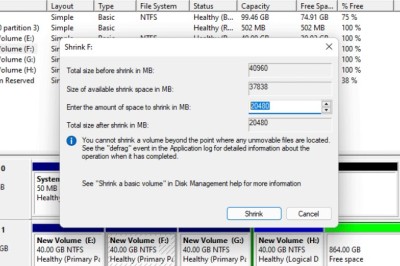views
Why Are Benzos Used for Alcohol Detox Treatment?
More than 14 million U.S. adults experience alcohol use disorder (AUD) every year. However, for various reasons, only a small percentage with AUD seek professional treatment. Because of this, there is much to the alcohol detox treatment process that many know. One example includes the common practice in alcohol detox of using benzodiazepines to treat alcohol addiction and its associated withdrawal symptoms. Here’s why they are used and how it relates to the overall goal of detoxing from alcohol.
A Cure or a Crutch?
When people first hear that benzodiazepines are commonly used to treat patients during alcohol detox, they might be concerned for themselves or others considering professional detox. In all fairness, this concern is completely understandable. Benzodiazepines (benzos for short) are among the most widely used prescription drugs, and their use can lead to widespread addiction and abuse. Benzos include various drugs with different strengths, including brand names such as Xanax and Valium. These drugs are commonly prescribed to treat anxiety and sleep disorders, but their widespread use quickly led to a widespread addiction problem.
The U.S. Food and Drug Administration (FDA) placed its black box warning on all benzos to warn people of their high potential for abuse and/or death. Although benzos never gained notoriety as an epidemic drug like opioids and stimulants, some observers believe benzos still threaten another epidemic in the making. If this is true, how can benzos possibly help with alcohol addiction?
Understanding the Benefits
To understand why benzos are used during alcohol detox, we need to understand what happens when someone develops AUD. This brain disease that limits a person’s ability to abstain from using alcohol. When someone with AUD attempts to cut back on alcohol or stop using it altogether, they will experience withdrawal symptoms, ranging in intensity. These include shakiness, restlessness, nausea, sweating, a racing heart rate, and even seizures. Not only are these alcohol withdrawal symptoms enough to keep people from trying to quit using alcohol by themselves, but they can also become outright deadly if not dealt with in a professional setting.
One extreme example is delirium tremens (DTs), an altered mental status accompanied by seizures, hallucinations, fever, high blood pressure, and heart failure. This is where the use of benzos comes into the picture. One study cites benzos as the gold standard for alcohol withdrawal syndrome, saying the drug has the track record to prove it successfully achieves the three goals of detoxification described by the American Society of Addiction Medicine (ASAM):
- To provide a safe withdrawal from the drug(s) of dependence and enable the patient to become drug-free.
- To provide a withdrawal that is humane and thus protects the patient’s dignity.
- To prepare the patient for ongoing treatment of his or her dependence on alcohol or other drugs.
Benzos treat alcohol withdrawal by helping to control seizures and delirium tremens, a common withdrawal symptom of alcohol addiction. Valium is the preferred benzo because it works quickly and lasts for a long time, which allows for a smooth process from intoxication to sobriety. Valium is also a good option because it is an easy drug to regulate and eventually reduce dosage amounts as the detox process plays out.
Detox programs can use other medications, but they do not provide the protection from seizures and delirium tremens that benzos do. Because of this, benzo use is considered a minor risk compared to the greater danger of withdrawal symptoms, as well as a drug that has performed better than other options in clinical trials.
The Big Picture
While the risk of benzos in general certainly commands our informed attention, we need to see them in relation to the bigger picture. The key to treating alcohol addiction begins with detox, and benzos serve as a way to ensure that the entire process is done in a safe and comfortable manner. Of course, this also highlights why it is preferable to do this in a controlled environment with trained medical professionals. Not only does this mitigate the risks of alcohol withdrawal symptoms, but it also ensures that benzos are used in a way that deters addiction.
Medical professionals can monitor detox patients throughout the process, taking note of any adverse side effects of using benzos and adjusting dosage as necessary. While benzos are dangerous in an uncontrolled environment, they can make a positive difference when their use is limited and in the context of the big picture.
Sources
SingleCare. (2022 Feb 24). Alcohol Statistics 2022. Retrieved https://www.singlecare.com/blog/news/alcohol-statistics/#:~:text=More%20than%2014%20million%20U.S.,By%20Lindsay%20Modglin%20%7C%20Feb.
Delphi Health Group. (n.d.). Guide to Alcohol Detox: Severity, Dangers, and Timeline. Retrieved https://delphihealthgroup.com/alcohol/detox/
Delphi Health Group. (n.d.). Guide to Benzodiazepine Addiction and Treatment. Retrieved https://delphihealthgroup.com/benzodiazepines/
Delphi Health Group. (n.d.) Xanax Addiction Treatment Guide. Retrieved https://delphihealthgroup.com/benzodiazepines/xanax/
Delphi Health Group. (n.d.) Valium Abuse- Side Effects, Treatment, and Detox Help. Retrieved https://delphihealthgroup.com/benzodiazepines/valium/
FDA. (2020 Oct 2). FDA Requiring Boxed Warning Updated to Improve Safe Use of Benzodiazepine Drug Class. Retrieved https://www.fda.gov/drugs/drug-safety-and-availability/fda-requiring-boxed-warning-updated-improve-safe-use-benzodiazepine-drug-class
Yale Medicine. (2019 Dec 11). Are Benzodiazepines the New Opioids? Retrieved https://www.yalemedicine.org/news/benzodiazepine-epidemic
NIH. (2021 April). Understanding Alcohol Use Disorder. Retrieved https://www.niaaa.nih.gov/publications/brochures-and-fact-sheets/understanding-alcohol-use-disorder
Delphi Health Group. (n.d.). Alcohol Abuse and Addiction Treatment Guide. Retrieved https://delphihealthgroup.com/alcohol/
Medscape. (2021 Aug 4). Delirium Tremens (DTs). Retrieved https://emedicine.medscape.com/article/166032-overview#:~:text=Delirium%20tremens%20(DTs)%20is%20the,nausea%2C%20vomiting%2C%20and%20insomnia.
NIH. (2015 Sep 9). Alcohol Withdrawal Syndrome: Benzodiazepines and Beyond. Retrieved https://www.ncbi.nlm.nih.gov/pmc/articles/PMC4606320/
Delphi Health Group. (n.d.) What is the Most Effective Alcohol Withdrawal Medication? Retrieved https://delphihealthgroup.com/alcohol/effective-withdrawal-medication/
Mayoclinic. (2022 Mar 1). Gabapentin. Retrieved https://www.mayoclinic.org/drugs-supplements/gabapentin-oral-route/description/drg-20064011
Cochrane. (2011 Jun 15). Safety and Effectiveness of Medications for the Treatment of Alcohol Withdrawal Syndrome. Retrieved https://www.cochrane.org/CD008537/ADDICTN_safety-and-effectiveness-of-medications-for-the-treatment-of-alcohol-withdrawal-syndrome
Delphi Health Group. (n.d.). Guide to Drug Addiction: Symptoms, Signs, and Treatment. Retrieved https://delphihealthgroup.com/addiction/

























Comments
0 comment